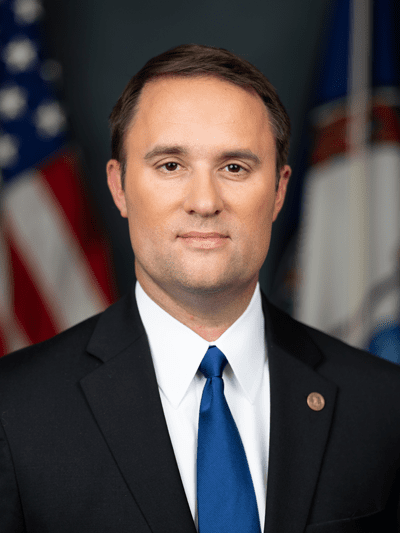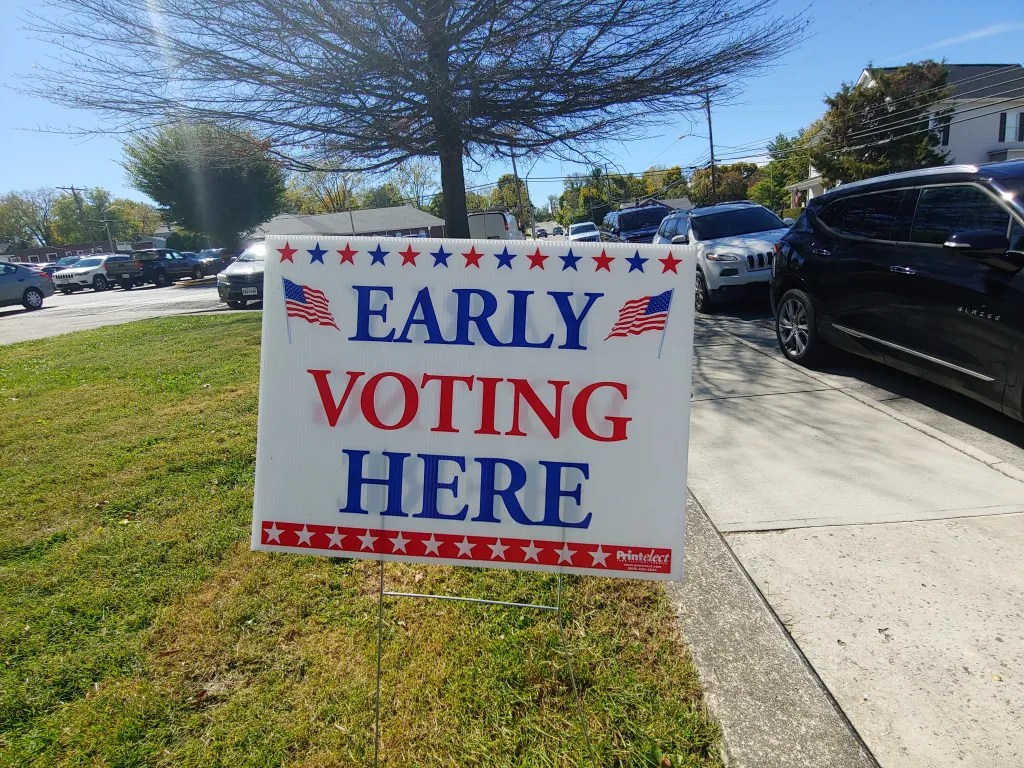If Jason Miyares were a baseball player, he’d be the relief pitcher who comes in to get his team out of a bases-loaded jam, and the first pitch he throws is … a curveball.
That’s my take on the letter that the attorney general has sent to a store in Radford warning its owner that selling or “sharing” marijuana makes them subject to fines under the state’s consumer protection laws.

You’d think the attorney general would go after the store in a more straightforward way for dealing weed. You know, have people arrested and hauled off to jail. However, as Greg Habeeb — a former Republican state legislator from Salem who now represents legit cannabis interests as a lobbyist — explained to Cardinal’s Susan Cameron in her story last week, the attorney general doesn’t have that kind of power. It’s up to state police or local law enforcement to deal with illegal weed sales, and they don’t have much incentive to do so now that the penalties have been reduced. Unable to throw a legal fastball, Miyares has turned to the only pitch in his arsenal: his power to enforce consumer laws. In this case, he says the weed that a store in Radford has been dispensing isn’t properly labeled. It’s also something of what in baseball we’d call a “brushback” pitch — intended to send a signal and intimidate an opposing player.
How did we get into a situation where a tough-on-crime Republican attorney general is faulting marijuana stores for improper packaging — especially when Virginia isn’t supposed to have any marijuana stores to begin with?
Republicans would say it’s because Democrats passed a bad bill. Democrats would say it’s because Republicans wouldn’t help them pass a good bill. I say it’s a good opportunity to talk about how confusing Virginia’s cannabis laws are — and how they’ve created the exact opposite of what both sides want.
In 2021, when Democrats controlled both the General Assembly and the governorship, they resolved to legalize cannabis (the scientific and commercially preferred word for marijuana). They knew it would take some time to work out the details of how a legal, regulated market would work. In the meantime, they didn’t want people being arrested for something legislators intended to make legal, so they went ahead and legalized personal possession of small amounts of pot and planned to come back the following year to work out the rest.
What they didn’t count on was that they’d lose the election that November. The Republicans who held the new majority in the House of Delegates did not share the Democrats’ enthusiasm for legalizing the devil’s lettuce.
That left Virginia as the only state where it’s legal to possess small amounts of weed, but it’s not legal for anyone to sell it to you, which raises the question of just where this weed is coming from. Yes, you can grow your own (up to four plants), but many of us aren’t green thumbs or don’t have any interest in becoming one, for the same reason that people who like wine aren’t pressing their own grapes.
After Democrats regained control of the House of Delegates in the 2023 elections, one of the things they did in this year’s legislative session was to, in their view, complete their work. They passed a bill to set up a legal retail market for cannabis in the state. Gov. Glenn Youngkin promptly vetoed it. Along the way, he also famously said he didn’t want to see “a cannabis shop on every corner.”
However, that’s what we’ve got — figuratively, if not literally. Across Southwest Virginia, we’re seeing stores pop up for the express purpose of selling cannabis. They’re trying to cloak themselves in the guise of being “membership clubs,” although that membership is darned easy to obtain. You basically just walk in, and you’re considered a member. I stumbled upon some of these stores this summer. At one in Abingdon, I was given a membership card as soon as I entered the store. At another in Radford, all I had to do was write my name — or a fake one, if I preferred — in a notebook. At a third in Marion, the clerk just asked for my first name and entered that into a database. (You can read all the colorful details here and here.)
Why these stores are proliferating in Southwest Virginia is a mystery, but they are. Politically, this is fascinating, since Southwest Virginia is easily the most Republican part of the state, a point I addressed in a previous column. Regardless, the situation we have now is not what either side wants: Democrats wanted a legal market that’s regulated and taxed; some Republicans didn’t want a legal market at all. Others were fine with a legal market but didn’t want it set up the way Democrats wanted. What we’ve got now instead is a black market for cannabis that’s more visible than ever before. This is the cannabis equivalent of moonshiners during Prohibition opening up stores on Main Street and selling bathtub gin — or maybe carburetor gin. It’s hard to tell. Nobody knows where it’s from or what’s really in it. That opens the legal door for Miyares to start threatening fines for lack of proper packaging. This seems the equivalent of how Al Capone never got busted for being a gangster; he was finally nailed for tax evasion.
Miyares’ letter raises some questions, which, so far, his office isn’t answering. Among them:
- How many places does he intend to target? After all, Cardinal reported that there are now at least nine cannabis-related stores in Bristol alone.
- How did he choose the Good Vibes shop in Radford, and how did he become aware of what’s happening there? I’m not unmindful of the fact that I wrote a column about my visit to the Good Vibes store in Radford — and published the lab reports that showed it was, indeed, “sharing” marijuana (marijuana with fairly high levels of metals and molds, too). If the attorney general is responding to Cardinal’s reporting, well, we’re happy to have him as a reader. It’s not exactly my intention to become a narc, but my job as a journalist is to tell people what’s going on — and this is part of what’s going on.

There’s a bigger question, though, for others — the governor, future governors, legislators and future legislators (considering that we elect some of both next year). Namely, what’s the end game here? Are we OK with all these weed stores popping up that appear to be operating somewhere along the edge of the law? If not, what are we going to do about it?
In “Jurassic Park,” the scientist Ian Malcomb, played by Jeff Goldblum, famously warned that attempts to genetically prevent the breeding of resurrected dinosaurs would ultimately fail: “Life finds a way.” The free market does, too. In fact, it already has. There is clearly market demand for cannabis. These weed stores are simply responding to the basic economic laws of supply and demand. Adam Smith would be very proud. Mark my words: These stores will spread. The market demands it. People in Southwest Virginia are not the only ones who want to get high.
At this point, there are really just two options:
The state could turn to law enforcement to run these stores out of business.
However, there seems little incentive to do that. The best the attorney general can do is to threaten fines, but these stores may be making so much money that the fines — $2,500 per violation, restitution to affected consumers, reimbursement of state expenses up to $1,000 per violation and attorney’s fees — simply constitute the cost of doing business and serve as little more than an unofficial tax. No one seems particularly interested in how much weed is in the back room and whether it exceeds the state limits for a felony (between 1 ounce and 5 pounds can get you one to 10 years; more than 5 pounds and you’re talking five to 30 years). Everybody has to set priorities. Police don’t go after every speeder, but they do try to crack down on the ones zipping through school zones. The same principle applies here: On the scale of offenses, somebody selling — or “sharing” — weed out of a storefront ranks a lot lower than the other crimes that law enforcement has to contend with on a daily basis.
Or the state could go ahead and legalize retail sales.
That would also require some enforcement; the legalization previously envisioned called for the state to issue licenses — which means somebody would have to go in, document that unlicensed stores are selling weed, and charge them. The longer this goes on, the harder that will be to do. I haven’t heard anyone suggest that we simply let the free market regulate how many cannabis stores there are. Those most vocal about the superiority of the free market system might be afraid of the answer because right now in Bristol, it appears to be at least nine. My sense is that a surprising number of Republicans might be willing to vote for legalization — but won’t right now, as long as they know the governor will veto the bill. Why take the risk? Of note: This may be a case where the voters are ahead of the politicians. I’ve written before about how conservative localities in other states have often voted in favor of legalization, especially the Appalachian counties in Ohio that might bear the most resemblance to Southwest Virginia. That could well be why we’re seeing these cannabis sales flourish so openly in the western part of Virginia. I call this the “Copperhead Road” syndrome, after the hit song by Steve Earle about a moonshiner who turns to growing weed “up the hollow.” It’s also notable that former President Donald Trump has said he’ll vote in favor of Florida’s ballot referendum this fall that would legalize retail sales of cannabis in that state. If any Virginia Republicans want political cover, Trump just gave it to them.
Miyares’ use of the consumer protection laws to go after weed sales points to both an enforcement mechanism and a rationale for legalization — specifically, to protect the health of consumers. Right now, weed buyers have no idea what they’re smoking. In an upcoming column, I’ll tell you how I walked into another store recently and bought 7 grams of marijuana that has now tested as being full of so much mold and so many microbes that it could make someone sick. Stay tuned.
Early voting is now underway

You can look up who’s on the ballot in your locality, and see side-by-side comparisons of many candidates, on our Voter Guide. Last week I had a column that listed 16 unusual things about this year’s election choices.
If you want even more political analysis, you can sign up for my weekly political newsletter, West of the Capital, that goes out Friday afternoons. Last week I looked at how often it rains on Election Day (which might be a reason to lock your voter in early) as well as analysis of some recent Virginia polls plus a look at which candidates our readers have been most curious about, as based on searches in our Voter Guide.
You can sign up for any of our free newsletters below: